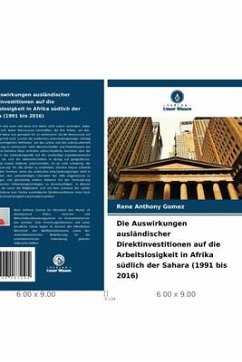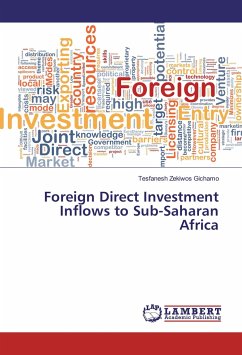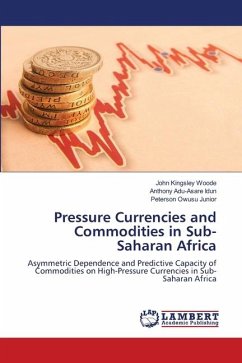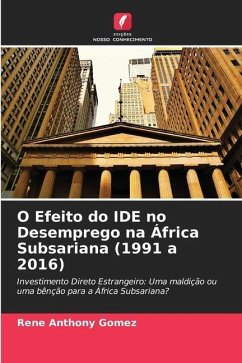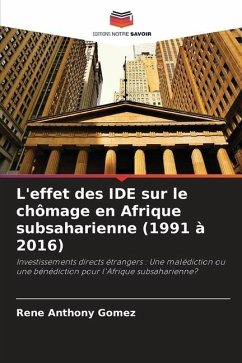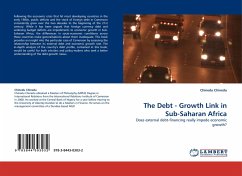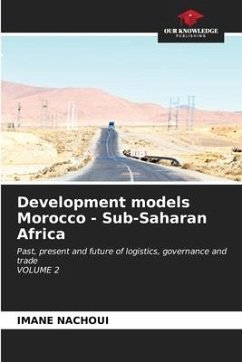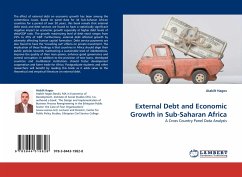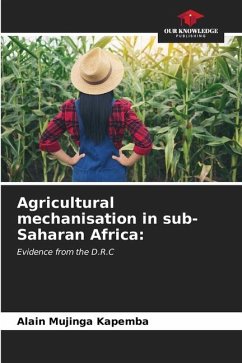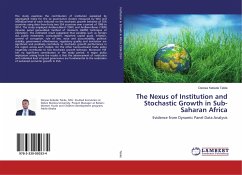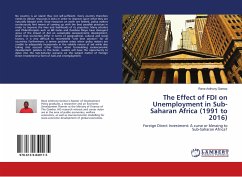
The Effect of FDI on Unemployment in Sub-Saharan Africa (1991 to 2016)
Foreign Direct Investment: A curse or blessing to Sub-Saharan Africa?
Versandkostenfrei!
Versandfertig in 6-10 Tagen
27,99 €
inkl. MwSt.

PAYBACK Punkte
14 °P sammeln!
No country is an island thus not self-sufficient. Every country therefore needs to obtain resources it lacks in order to improve upon what they are naturally blessed with. Since resources on earth are limited, policy makers continuously find means of coming up with the best possible practices in order to improve the lives and livelihoods of its populace. Many scholars and Philanthropists such as Bill Gates and Dambisa Moyo have divergent views of the impact of Aid on sustainable socioeconomic development. Given that economies differ in terms of geographical, cultural and social factors, it is ...
No country is an island thus not self-sufficient. Every country therefore needs to obtain resources it lacks in order to improve upon what they are naturally blessed with. Since resources on earth are limited, policy makers continuously find means of coming up with the best possible practices in order to improve the lives and livelihoods of its populace. Many scholars and Philanthropists such as Bill Gates and Dambisa Moyo have divergent views of the impact of Aid on sustainable socioeconomic development. Given that economies differ in terms of geographical, cultural and social factors, it is very difficult to recommend "one best solution" for all countries. Furthermore, a severe problem arises when policy makers are unable to adequately incorporate in the volatile nature of aid while also taking into account other factors when formulating socioeconomic development policies. In this book, readers will have the opportunity to delve into the Sub-Saharan scenario on the subject matter of Foreign Direct Investment (a form of Aid) and Unemployment.



